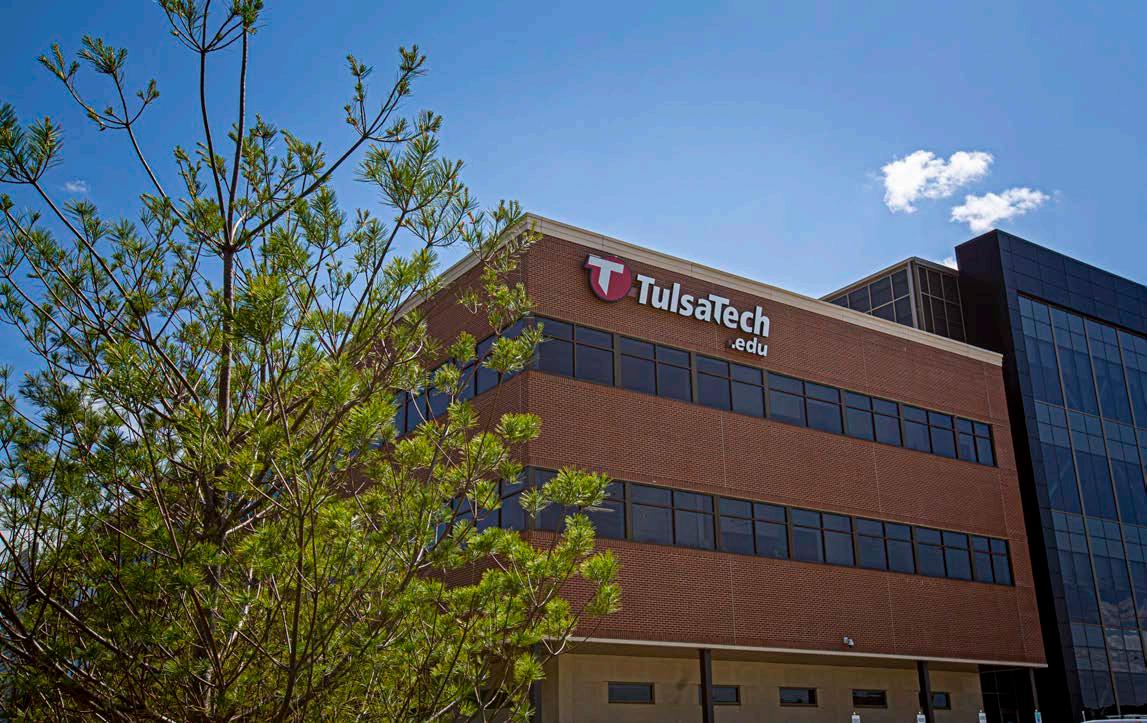Table of Contents
Tulsa Technology Center (Tulsa Tech) stands as a pillar of educational excellence and workforce development in Oklahoma. With a rich history spanning over five decades, Tulsa Tech has established itself as a leader in technical and vocational education, providing students and professionals with the skills
A Brief History of Tulsa Technology Center

Tulsa Technology Center was founded in 1965 as the first career and technology education center in Oklahoma. Originally named the Tulsa Area Vocational-Technical School, it was established to meet the growing demand for skilled labor in the Tulsa area. The center aimed to provide practical, hands-on training in various trades and technical fields, catering to both high school students and adults seeking to enhance their skills or change careers.
Over the years, Tulsa Tech expanded its facilities, programs, and services to accommodate the evolving needs of the workforce. Today, it boasts six campuses across the Tulsa metropolitan area, each equipped with state-of-the-art facilities and resources to support a wide range of educational and training opportunities.
Comprehensive Programs and Courses
Tulsa Tech offers an extensive array of programs and courses designed to equip students with the skills and knowledge required for success in various industries. These programs are categorized into several key areas, including:
1. Healthcare
Tulsa Tech provides comprehensive training for careers in the healthcare sector, which is one of the fastest-growing industries in the United States. Programs include nursing, medical assisting, dental hygiene, and surgical technology. Students receive hands-on training in modern laboratories and clinics, ensuring they are well-prepared for the demands of healthcare professions.
2. Information Technology
In response to the increasing demand for IT professionals, Tulsa Tech offers programs in computer programming, cybersecurity, network administration, and web development. These courses cover a broad spectrum of skills, from coding and software development to network security and database management, preparing students for lucrative careers in the tech industry.
3. Automotive Technology
Tulsa Tech’s automotive programs provide training in automotive repair, diesel technology, and collision repair. Students gain practical experience in diagnosing and repairing vehicles, as well as understanding the latest advancements in automotive technology. The center’s partnerships with local dealerships and automotive companies ensure that graduates are well-prepared for employment in the automotive industry.
4. Manufacturing and Engineering
Tulsa Tech offers programs in manufacturing, welding, machining, and engineering technology. These courses emphasize hands-on training and technical skills that are essential for careers in manufacturing and engineering. Students learn to operate advanced machinery, design and fabricate products, and apply engineering principles to solve real-world problems.
5. Business and Entrepreneurship
Recognizing the importance of business acumen, Tulsa Tech provides programs in business management, marketing, accounting, and entrepreneurship. These courses equip students with the knowledge and skills needed to start their own businesses or excel in various roles within established companies. The curriculum includes practical training in areas such as financial analysis, marketing strategies, and business planning.
6. Construction Trades
Tulsa Tech’s construction programs include training in carpentry, electrical work, plumbing, and HVAC technology. Students receive hands-on experience in constructing, maintaining, and repairing buildings and infrastructure. These programs are designed to meet the growing demand for skilled tradespeople in the construction industry.
Innovative Training and Learning Environment

Tulsa Tech is renowned for its commitment to providing a dynamic and innovative learning environment that mirrors real-world conditions. The center’s campuses are equipped with advanced facilities, including modern laboratories, workshops, and simulation environments that enable students to gain practical experience in their chosen fields.
1. State-of-the-Art Facilities
Each campus at Tulsa Tech features state-of-the-art facilities that are designed to support hands-on learning and technical training. For example, the Lemley Memorial Campus houses advanced healthcare laboratories, including simulated hospital rooms and surgical suites, while the Peoria Campus boasts modern automotive and manufacturing workshops equipped with industry-standard tools and machinery.
2. Industry Partnerships
Tulsa Tech has forged strong partnerships with local businesses, industries, and organizations to ensure that its programs align with current industry needs and standards. These partnerships provide students with opportunities for internships, apprenticeships, and job placements, enhancing their practical experience and employability.
3. Experienced Faculty
The center’s faculty consists of experienced professionals who bring a wealth of industry knowledge and expertise to the classroom. Instructors are not only skilled educators but also possess extensive practical experience in their respective fields, ensuring that students receive relevant and up-to-date training.
4. Flexible Learning Options
Programs are available on a full-time, part-time, and evening basis, allowing students to balance their education with work and other commitments. Additionally, the center provides online courses and blended learning options to enhance accessibility and convenience.
Impact on the Community and Workforce
Career Placement and Job Readiness
Tulsa Tech’s emphasis on practical training and real-world experience ensures that graduates are job-ready and highly sought after by employers. The center’s Career Services department provides job placement assistance, resume writing workshops, and interview preparation, helping students secure employment in their chosen fields.
2. Economic Development
Technology, which are critical to the local economy. Graduates of Tulsa Tech often find employment with local businesses, contributing to the economic vitality of the community.
3. Lifelong Learning and Professional Development
Tulsa Tech is committed to promoting lifelong learning and professional development. The center offers continuing education courses, industry certifications, and customized training programs for individuals and businesses seeking to upgrade their skills or stay current with industry trends. This commitment to ongoing education helps ensure that the local workforce remains competitive and adaptable.
4. Community Engagement and Outreach
Tulsa Tech actively engages with the local community through various outreach initiatives and partnerships. The center collaborates with local schools, community organizations, and businesses to provide educational opportunities, support workforce development, and promote economic inclusion. Tulsa Tech also offers programs for high school students, including career exploration and dual enrollment options, to help them prepare for future careers.
Challenges and Future Directions
Despite its many successes, Tulsa Tech faces several challenges as it continues to evolve and adapt to changing educational and workforce needs. These challenges include:
1. Keeping Pace with Technological Advancements
As technology continues to advance at a rapid pace, Tulsa Tech must continually update its programs and facilities to stay current with industry standards. This requires ongoing investment in new equipment, technology, and training to ensure that students are prepared for the demands of the modern workforce.
2. Addressing Skills Gaps
As industries evolve, new skills gaps emerge that must be addressed through targeted training programs. Tulsa Tech must work closely with industry partners to identify these gaps and develop programs that meet the needs of employers. This includes expanding programs in emerging fields such as renewable energy, cybersecurity, and advanced manufacturing.
3. Expanding Access and Equity
Ensuring that educational opportunities are accessible to all members of the community is a priority for Tulsa Tech. The center is committed to expanding access to education and training for underserved populations, including low-income individuals, minorities, and adults seeking career changes. This involves providing financial aid, scholarships, and support services to help students overcome barriers to education.
4. Enhancing Online and Remote Learning
The COVID-19 pandemic has highlighted the importance of online and remote learning options. Tulsa Tech must continue to enhance its online education offerings to provide flexible and accessible learning opportunities for students who cannot attend in-person classes. This includes developing high-quality online courses and utilizing technology to support remote learning.
Conclusion
Tulsa Technology Center is a cornerstone of technical and vocational education in Oklahoma, providing students and professionals with the skills and knowledge necessary to succeed in a rapidly changing job market. Through its comprehensive programs, state-of-the-art facilities, and strong industry partnerships, Tulsa Tech continues to play a vital role in workforce development and economic growth in the Tulsa region. As it faces the challenges of the future, Tulsa Tech remains committed to expanding access to education, addressing skills gaps, and preparing the next generation of skilled professionals for the opportunities and challenges of the modern workforce.
For More Information Please Visit These Websites Mindmeister And Arturia